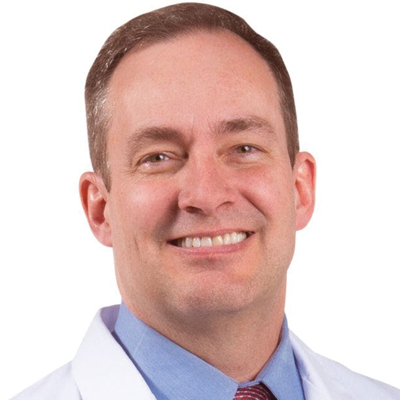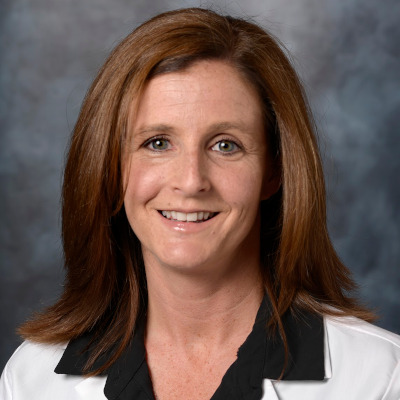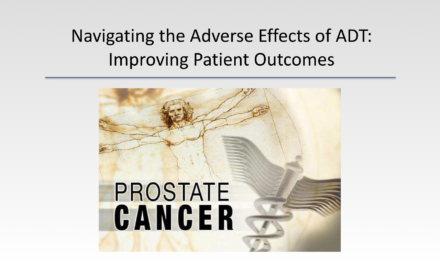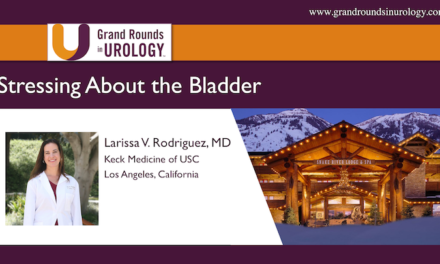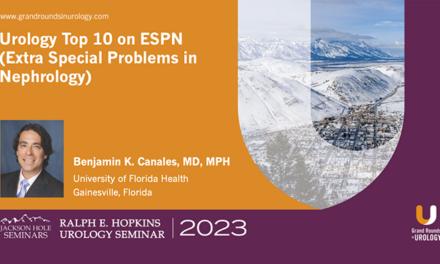A. Lenore Ackerman, MD, PhD, and Gerard D. Henry, MD, presented “New Advances in Penile Implant Infections Detection in 2022” for the Grand Rounds in Urology audience in March 2022.
How to cite: Ackerman, A. Lenore, Henry, Gerard D. “New Advances in Penile Implant Infections Detection in 2022.” March 2022. Accessed Jan 2026. https://grandroundsinurology.com/new-advances-in-penile-implant-infections-detection-in-2022/
New Advances in Penile Implant Infections Detection in 2022#
In conversation with A. Lenore Ackerman, MD, PhD, Assistant Professor of Urology and Director of Research in the Division of Female Pelvic Medicine and Reconstructive Surgery at the University of California, Los Angeles, Gerard D. Henry, MD, a urologist with WK Advanced Urology in Shreveport, Louisiana, and President of the Louisiana Urological Society, provides an update on his research into the detection of penile implant infections. Dr. Henry explains that bacterial infection is more common than urologists realized, noting how, 20 years ago, he and his colleagues found a biofilm on the penile implants of patients who appeared to just be experiencing mechanical failure. He then describes a study comparing next generation sequencing (NGS) versus traditional culture in penile implants and suggests that NGS might be the new gold standard for assessing penile implant infections since it can identify not only what bacteria are present, but also the abundance of bacteria. Dr. Henry highlights that NGS has demonstrated that the main form of bacteria affecting penile implants is not Staphylococcus epidermidis, as long believed, and that Escherichia coli and Pseudomonas are more common. He argues that by more specifically identifying these bacteria, urologists may be able to better treat patients and avoid having to remove implants. Dr. Henry then introduces a new, currently-recruiting, prospective, randomized study of next generation sequencing versus traditional cultures for clinically infected penile implants and the impact of culture identification on outcomes. The discussion concludes with a question-and-answer session in which Dr. Ackerman asks about outcomes in the upcoming trial, other potential applications of NGS in urology, and the potential source of the bacteria identified by NGS.
For more in-depth discussions and educational features on urologic infections, visit our Microbiome & Urologic Infection Learning Center.
About the Authors#
Gerard D. Henry, MD#
Gerard D. Henry, MD, is a urologist with WK Advanced Urology in Shreveport, Louisiana, as well as President of the Louisiana Urological Society. Dr. Henry completed a urology residency with a 1-year basic science fellowship in Men’s Health at Duke University and is certified by the American Board of Urology. In addition, he has been the number 1 US AMS IPP implanter for the last ten years and the number 1 published author on IPPs in the world for the last fifteen years. He has won Best Clinical Abstract at two national meetings and has written 5 Journal of Urology CME articles on men’s health, including one cover article. Dr. Henry is the inventor of the Henry Mummy Wrap, the Henry Finger Sweep, and the New Length Measurement Technique. Currently, he is Secretary of the Society of Urologic Prosthetic Surgeons, and a Member-at-Large on the Executive Committee of the SES-AUA.
A. Lenore Ackerman, MD, PhD#
Dr. A. Lenore Ackerman is Assistant Professor of Urology and Director of Research in the Division of Female Pelvic Medicine and Reconstructive Surgery at the University of California, Los Angeles. She was born in Los Angeles, but spent her childhood throughout the US, from southern California to Maine. After settling in New Haven, Connecticut, she earned her degree in Molecular Biophysics and Biochemistry at Yale University. She later completed her PhD in Immunology at Yale, focusing on molecular mechanisms of antigen presentation in dendritic cells. After realizing a desire to pursue translational medicine, she joined the Medical Scientist Training Program at Yale, receiving her MD. She completed her internship in General Surgery and began residency in Urology at the University of California, Los Angeles. Under the mentorship of Dr. Larissa Rodriguez, her research during this residency focused on changes in the central nervous system of an animal model due to interstitial cystitis induced by psychological stress. After the completion of residency, she continued at UCLA as a fellow in Pelvic Medicine and Reconstructive Surgery. Her current research focuses on the role of host-microbe interactions in the etiology of benign lower urinary tract disorders. She specializes in the treatment of incontinence, voiding dysfunction, and pelvic floor disorders.
ABOUT THE AUTHOR
Gerard D. Henry, MD, is a urologist with WK Advanced Urology in Shreveport, Louisiana, as well as President of the Louisiana Urological Society. Dr. Henry completed a urology residency with a 1-year basic science fellowship in Men’s Health at Duke University and is certified by the American Board of Urology. In addition, he has been the number 1 US AMS IPP implanter for the last ten years and the number 1 published author on IPPs in the world for the last fifteen years. He has won Best Clinical Abstract at two national meetings and has written 5 Journal of Urology CME articles on men’s health, including one cover article. Dr. Henry is the inventor of the Henry Mummy Wrap, the Henry Finger Sweep, and the New Length Measurement Technique. Currently, he is Secretary of the Society of Urologic Prosthetic Surgeons, and a Member-at-Large on the Executive Committee of the SES-AUA.

